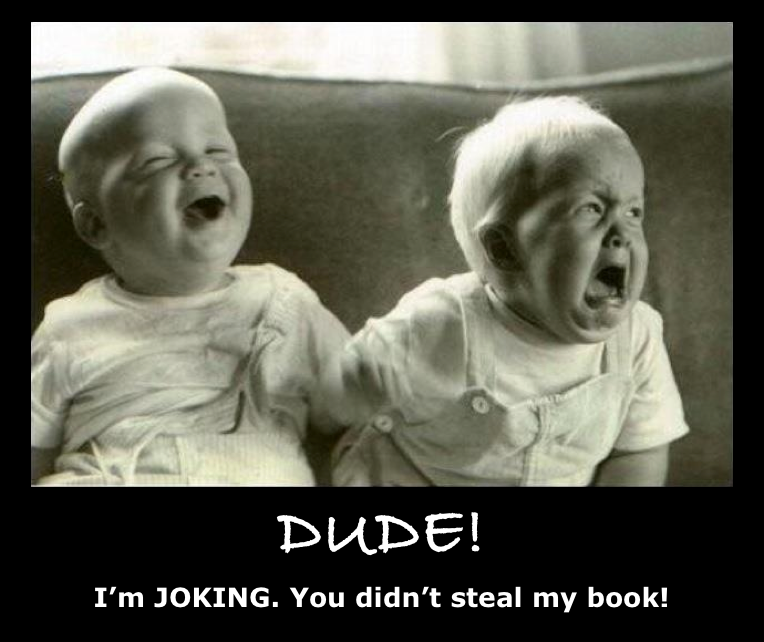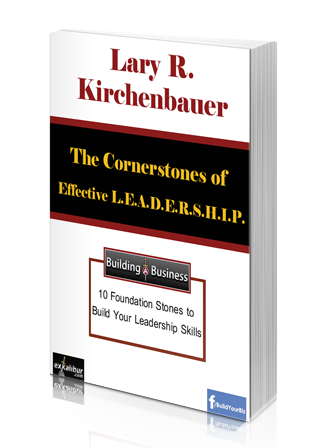 A young friend of mine called last week.
A young friend of mine called last week.
“Hey, did Jamie Dimon steal your book?” he asked, referring to the The Essential Hallmarks of a Good Leader recently published.
“No, he certainly didn’t steal it,” I said. “He might have read it since you can get it for free right here? Why would you think he stole it.”
“Okay,” he replied. “I guess he didn’t steal it then … but is there any chance he might have written it?”
Funny guy, huh?
Who is Jamie Dimon?
As you probably know, Jamie Dimon is the Chairman and CEO of JP Morgan Chase, with an enviable track record as a visionary executive leading large and complex financial organizations.
And, no, he didn’t write The Cornerstones of Effective Leadership … but I was eager to see just what my friend was referring to … and more importantly, what Jamie had to say about the characteristics he thought were the most important to being a successful leader.
What does Jamie think?
I certainly welcome Jamie Dimon’s contribution to this eternal search for the essence of leadership.
[pullquote]“Leadership is not magnetic personality, that can just as well be a glib tongue. It is not “making friends and influencing people”, that is flattery. Leadership is lifting a person’s vision to higher sights, the raising of a person’s performance to a higher standard, the building of a personality beyond its normal limitations.” ~ Peter Drucker[/pullquote]
Hundreds of books have spanned the ages, extracting lessons from Julius Caesar to Patton, Jesus to Mohammed and Genghis Khan to Machiavelli … and from every president and leader that’s ever graced the world’s stage.
As it turns out, Jamie Dimon and I do agree about many of the attributes of successful leaders, which I have described in my 12-part series and my e-book, The Cornerstones of Effective Leadership.
Let’s take a moment to think about some of these attributes and consider how we can apply them to be more effective leaders and build successful businesses.
Discipline
Dimon talks about a strong ethic and the importance of detailed follow up, which I’ve written about in The 8 Most Powerful Letters in the Productivity Toolkit, as the core of what he calls “discipline”.
In my article, The Cornerstones of Leadership | D = DISCIPLINE, I emphasize the power of a disciplined approach to getting things done, invoking the Steve Jobs mantra of “get rid of all the crappy stuff,” and offer this observation:
“Discipline is the only lasting antidote for the onslaught of information, the oppressive communication matrix and the unending stream of other tempting interruptions that impose on our ability to work on the things that matter most.”
[pullquote]Every week, we’re sharing valuable and practical leadership tips and tools to help you BECOME a better leader. Why not get these valuable tips and techniques sent directly to your inbox every week so you don’t miss them?[/pullquote]
Excellence
Dimon also emphasizes the importance of what he calls “high standards”.
He applies it to many things, including both performance and integrity.
I’ve chosen to separate those two qualities into Excellence and Integrity, because they each speak to different characteristics of an effective leader.
Making Excellence a benchmark of expectations as well as performance is crucial to building a successful organization.
Here’s one of the things I said about Excellence:
“If there are sub-par performers tucked into every corner, a culture of excellence will be unattainable and your goals will become mere platitudes. Your most talented performers won’t embrace excellence … and probably won’t stick around too long … because there is too much evidence that excellence is optional.”
Integrity
While Dimon integrates Integrity into his hallmark of “high standards,” it deserves special mention as one of the Cornerstones of Effective Leadership.
Here’s one of the things I shared about Integrity:
“Similar to Reliability, Integrity may be irretrievable after only a single breach … but you’ll need to consistently demonstrate your Integrity in challenging circumstances … in ways that may be costly, inconvenient, and even painful … if you want people to know you have it.”
Attitude

Dimon refers to “high morale” … “developed through fixing problems, dealing directly and honestly with issues, earning respect and winning.
I describe much of this as Attitude:
“Attitude is an unarguable characteristic of successful leadership and superior performance, and for many reasons. On one side, a positive attitude is a breath of fresh air to which we naturally gravitate.
“It is usually accompanied by a can-do approach, a commitment to excellence, a desire to be a collaborative teammate, a willingness to take on new challenges in foreign environments as well as a general approach that sees the glass half-full rather than half-empty.”
Loyalty
Dimon believes in Loyalty and we agree that loyalty to one person is more like cronyism than loyalty. For him, it means a lot of things: truth-telling, transparency, meritocracy and teamwork.
Here’s one of the things I said in my chapter on Loyalty:
“In the end, you can’t expect loyalty if you don’t give it. By fostering reciprocal loyalty, business leaders bear witness to the transforming power that comes from a loyal work force inspired to reach higher and dig deeper.
“That kind of loyalty can’t be bought but it’s hard to build a great company without it.”
Humility
Dimon also invokes the importance of Humility, another building block in the Cornerstones of Effective Leadership series about which we agree.
Here’s one of the things I said about Humility:
“Having a modest opinion of y
our importance or standing may sound like weakness to some people. Yet, humility is a dominant thread of great leaders because it is a powerful magnet to get high performers to follow you over the hill.”
Service
There are several qualities didn’t get much attention in The Essential Hallmarks of a Good Leader, like Service which includes the concept of the servant-leader coined by Robert Greenleaf in his 1970 essay, “The Servant as Leader”:
““The servant-leader is servant first. … It begins with the natural feeling that one wants to serve, to serve first. Then conscious choice brings one to aspire to lead. That person is sharply different from one who is leader first, perhaps because of the need to assuage an unusual power drive or to acquire material possessions….”
Purpose
It’s in the subtext of Dimon’s article, but to be successful, businesses must also have a clear Purpose
Here is an excerpt from my article:
“Purpose also requires clarity, and for me, clarity requires simplicity. Pompous-sounding vision statements obfuscate rather than enlighten the Purpose of a company and its true direction.
“Your Purpose must be both clear and simple so your community can easily understand it. Only then can it be transformed into a strategy that people can execute.”
What is Leadership after all?
I greatly appreciate that Dimon brings additional attention to understanding the hallmarks of successful leaders.
It reinvigorates the conversation about what it takes and adds another dimension to the search for these most critical qualities.
Leadership is a complex amalgam of many qualities and characteristics. For thousands of years, countless observers and executives have attempted to capture these essential characteristics of leadership.
Summary
If you put them all together, there have been hundreds of important attributes that someone has deemed absolutely essential for successful leaders. Many of them are similar words or euphemisms; others are almost mutually exclusive.
None of them is insignificant, however, because they all play a part in the human condition … and all of those elements of the primal goo from which we originate, show up in one way or the other, for better or worse.
That’s why our mission, above all, is to continue to learn, to work hard … and to continually apply what we’ve learned to become more effective leaders.
That’s the only way we’ll be able to build great businesses.
Question?
What do you think is the primary requirement for being a great leader? Do you agree with these choices? What would you add? What would you leave out?



